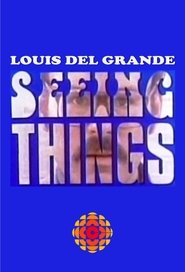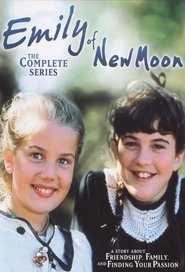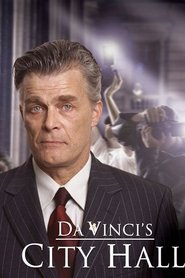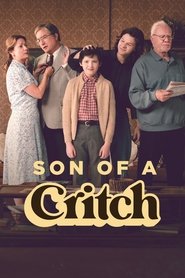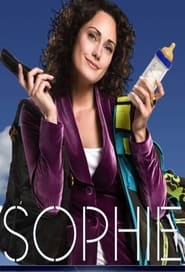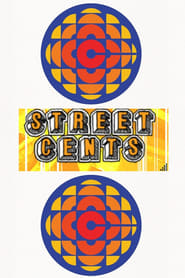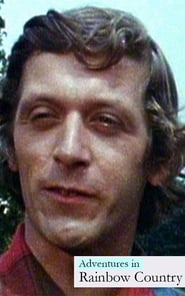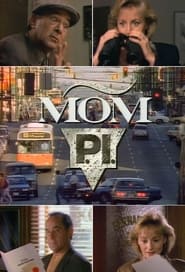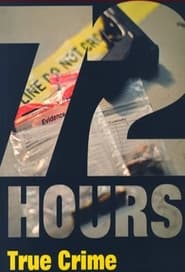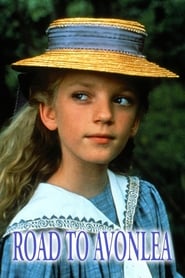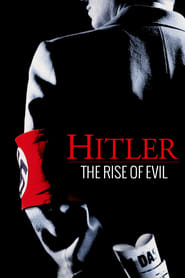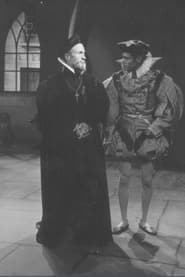Cbc Television TV Series - Page 4
-
Seeing Things
1981
star 5Seeing Things is a Canadian comedy-drama mystery television series which originally aired on CBC Television from 1981 to 1987. It was also seen in Europe, South Africa, Singapore, Spain, Australia and the United States. In all, 43 episodes were produced. With the exception of "Seeing R.E.D." episodes were one hour long. The show starred Louis Del Grande as Louis Ciccone, a newspaper journalist who solves murders with the help of his ability to see postcognitive visions. Unfortunately, Louis cannot consciously control this sense except by investigating the clues the initial vision gives. In some episodes, however, such as "Seeing the Country", he is able to stop visions from entering his mind. Nevertheless, only when he discovers new information on the case will further visions occur, which provide increasingly more detail until they finally reveal the murderer. Del Grande was also the show's creator and writer. The show also starred Del Grande's real-life wife Martha Gibson as Ciccone's wife Marge, and Janet-Lai -
Emily of New Moon
1998
star 8.8Emily of New Moon is a Canadian television series, which aired on CBC Television from 1998 to 2000. The series originally aired in the United States on the Cookie Jar Toons block on This TV and it is currently seen in Canada on the Viva, Bravo! and Vision TV cable channels. The series, produced by Salter Street Films, was based on the Emily of New Moon series of novels by Lucy Maud Montgomery. The series consisted of three seasons of thirteen episodes and one season of seven episodes, for a total of forty-six. The executive producers were Micheline Charest, Michael Donovan, and Ronald Weinberg. The series starred Martha MacIsaac as the titular orphan Emily Starr. Susan Clark and Sheila McCarthy played Emily's aunts Elizabeth and Laura, who had taken on the responsibility of raising Emily following her father's death, and Stephen McHattie played her cousin Jimmy. Susan Clark left the series after the first season when her character, Elizabeth, was killed off. Recurring cast included Chip Ciupka as Mr. Carpenter, P -
Da Vinci's City Hall
2005
Da Vinci's City Hall
2005
Da Vinci's City Hall is a Canadian dramatic television series, which premiered on CBC Television on 25 October 2005. The series was a spin-off of the long-running Canadian series Da Vinci's Inquest. The creator, writer and executive producer of the series was Chris Haddock. -
Son of a Critch
2022
star 6.2A coming-of-age story set in St. John’s, Newfoundland of 11 year-old Mark, much older on the inside than his 11 years, who uses comedy to win friends and connect with people in his limited world. -
Lunar Jim
2016
star 7Lunar Jim is an animated preschool-oriented stop-motion television show produced in Canada by Halifax Film and Alliance Atlantis, and aired in the USA as well on Discovery Channel and V-Me from 2005-2012. The show is based on an original concept created by Alexander Bar. Season 1 was Executive Produced by Jeff Rosen. It was script-edited in Season one by Peter Sauder. Season two was helmed by award-winning veteran producer/writer Jed MacKay. Ben Zelkowizc provided the voice of Jim. Jim and his team; Rover the Robot Dog, Ripple the Super Space Mechanic, Eco the Farmer, and TED, the Technical Equipment Device, live on Blue Moon L22, the second-to-last moon on the edge of the Milky Way. Focusing on exploration and inquiry, Lunar Jim intends to promote such life skills as problem-solving, persistence, creativity, and cooperation, with an emphasis on "pre-science skills". His rallying cry is "Let's get lunar!" -
Sophie
2008
star 5.5Sophie is a Canadian television sitcom that aired on CBC from January 9, 2008 to March 23, 2009. It stars Natalie Brown as Sophie Parker, an unmarried single mother and talent agent. The show is an English-language adaptation of Télévision de Radio-Canada's show Les Hauts et les bas de Sophie Paquin. The show was created by Richard Blaimert and its executive producer is Jocelyn Deschênes, the same creative team behind the original series. It was the CBC's second attempt in as many years to create an English adaptation of a successful series from its French sister network, following the less successful Rumours. In February 2008, it was announced that the show had been bought by ABC Family, part of Disney-ABC Television Group in the United States. The network signed on for the first 13 episodes, as well as an option for the second season of the show. On March 27, 2009, the series was cancelled by CBC due to poor ratings. -
Street Cents
1989
Street Cents
1989
"Street Cents," a teen-centered newsmagazine aired on CBC Television from 1989 to 2006, stood out for its focus on consumer and media awareness for young viewers. Created by producer John Nowlan and inspired by Britain's "Pocket Money," the series garnered critical acclaim, winning Gemini Awards and an International Emmy for Best Youth Programming. Ad-free like CBC's Marketplace, it prioritized unbiased critique of products and services, promoting safety, ethics, and youth empowerment. Despite its lauded inclusivity, the show ended in October 2006 due to declining teen viewership, leaving CBC-TV without youth-targeted programming. -
Nothing Too Good for a Cowboy
1999
Nothing Too Good for a Cowboy was a CBC Television television show based upon the adventures of author and rancher Richmond P. Hobson, Jr. in Northern British Columbia. It is based upon the eponymous book and also The Rancher Takes a Wife. -
Adventures in Rainbow Country
1970
star 5.5"Adventures in Rainbow Country," aired on CBC Television from 1970 to 1971 and later ran on Nickelodeon in the early '80s. Led by Lois Maxwell as Nancy Williams, a widow caring for her children in rural Northern Ontario, the series revolved around family dynamics and featured characters like Billy, his Ojibwa friend Pete Gawa, and bush pilot Dennis McGubgub. Filming took place around Whitefish Falls, near Espanola, and scenes were shot in Birch Island and Manitoulin Island in 1969. With 26 episodes, it had successful reruns in Canada and internationally, appearing on channels like DejaView and Silver Screen Classics. Although never officially cancelled, the series didn't produce more episodes after its initial run. -
Razzberry Jazzberry Jam
2008
Razzberry Jazzberry Jam is an animated children's television show about music. All of the characters are anthropomorphic musical instruments. In each episode a special guest arrives at "The House of Jam" and the band learn about that guest and a new song that features that instrument. Each episode also has two live action components wherein children learn about musical concepts with real musicians and real instruments. The animation is done with Adobe Flash. -
Mom P.I.
1990
star 6Mom P.I. is a 1990-92 Canadian television comedy-drama series starring Rosemary Dunsmore, Stuart Margolin, Emily Perkins, and Shane Meier. Dunsmore plays eternal optimist Sally Sullivan, a recently widowed mother of two supporting her family as a waitress in a working-class diner, who talks her way into a job as assistant to grumpy, cynical private eye Bernie Fox, played by The Rockford Files' Margolin. Head writer for the show was Chris Haddock, who later created the much grittier Da Vinci's Inquest and Intelligence, also for the CBC. -
72 Hours: True Crime
2003
star 4.772 Hours: True Crime focuses on crime, specifically on the first 72 hours after a crime is committed, a critical time period for solving it. Rather than focus on fictional crimes, as do Law & Order and other TV shows elsewhere, True Crime depicted actual crimes that occurred throughout Canada, using dramatic reenactments and documentary-style footage of crime scenes. -
Mr. D
2012
star 7.4Based on Gerry Dee's real-life experiences as a high school teacher before he switched to comedy full-time, MR. D is a story about a charming, under-qualified teacher trying to fake his way through a teaching job, just like he often fakes his way through life. -
The Odyssey
1992
star 7.2The Odyssey is a Canadian-produced half-hour adventure-fantasy television series for children, originally broadcast 1992-94 on CBC Television. It starred Illya Woloshyn as Jay Ziegler, Ashleigh Aston Moore as Donna/Alpha, Tony Sampson as Keith/Flash, Andrea Nemeth as Medea/Sierra Jones, Mark Hildreth as Finger, Ryan Reynolds as Macro, Janet Hodgkinson as Val Ziegler, and Devon Sawa as Yudo. -
Road to Avonlea
1990
star 8.2In the fictional small town of Avonlea, Prince Edward Island, in the early 20th century, 10-year-old Montreal heiress Sara Stanley is sent by her wealthy father to live with her two maiden aunts, Hetty and Olivia King, to be near her late mother's side of the family. -
Hitler: The Rise of Evil
2003
star 7.1This biopic profiles history's most spectacular madman, tracing his journey from humble roots to complete mastery of Germany. -
Arctic Air
2012
star 6.6Arctic Air is about a Yellowknife-based maverick airline and the unconventional family who runs it. The owners are Mel Ivarson, an old school bush pilot; Krista Ivarson, Mel's daughter; and Bobby Martin, the son of Ivarson's deceased partner. Episodes focus on interpersonal conflicts between the characters as well as dramatic flying missions with their aging fleet of Douglas DC-3s, de Havilland Canada DHC-3 Otters and other aircraft. Each episode has one or more flying missions. The series was canceled on March 17, 2014, due to government budgetary cuts -
Diggstown
2019
star 6.8Follow Marcie Diggs, a star corporate lawyer who reconsiders her priorities after her beloved aunt commits suicide following a malicious prosecution. -
Folio
1955
Folio
1955
Folio, a precursor to CBC's renowned fine-arts series Festival, aired for four years starting in 1956. The series showcased original dramas, music compositions, and ballets, many originating from diverse regions across Canada. Notable episodes featured Barry Morse in a new staging of MacBeth, along with performances by Canadian talents like Robert Goulet and Sharon Acker. One of the highlights included a musical adaptation of the beloved Canadian classic, Anne of Green Gables. Airing without sponsorship, Folio thrived until its conclusion in the fall of 1960. Producers: Robert Allen, Harvey Hart, David Greene, Mario Prizek and Ronald Weyman.
